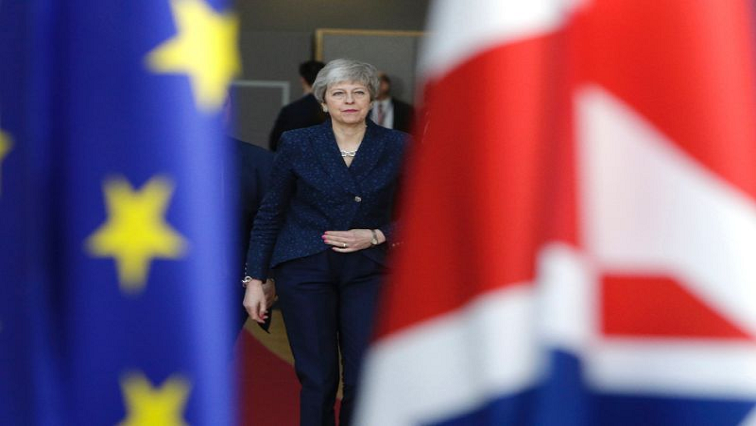EU leaders still want to avoid the chaos of a “no deal” Brexit, but concern is rising that giving Britain a long delay poses risks of its own and would solve little.
With less than two weeks until Britain ends its four-decade-old EU membership, UK lawmakers are still deadlocked over what kind of divorce they want.
European negotiators insist the deal they signed with Prime Minister Theresa May in November 2018 is the only guarantee of an orderly exit, but May has repeatedly failed to ratify the accord; and lawmakers are toying with options for a “softer” Brexit or an abrupt “no deal” departure.
If May gets the deal through parliament, Brexit can be postponed until 22 May. If she fails again, she may have to ask for more time before a crisis summit next week. But will the other 27 EU capitals grant a new delay?
So far they have been publicly unified in their approach to the Brexit talks, and they still agree on the “fundamentals” as one diplomat put it, but, the source added, there may be more “nuance” between their positions on whether to give May more time when she next meets them next Wednesday.
Some things seem clear; the EU 27 will not renegotiate the November withdrawal agreement nor rewrite the “Irish backstop” clause protecting peace in Ireland. And if Britain plans to remain in the union beyond 22 May, it will have to take part in the European parliamentary elections that start the next day.
If May puts aside her objection to this in exchange for time to seek a majority or agree a route to closer economic ties, a long delay would be needed. With political chaos in London, and European business rattled by the uncertainty surrounding Brexi, Brussels is unenthusiastic.
“Such an extension would carry significant risks for the EU, therefore a strong justification would be needed. Many businesses in the EU warn us against the cost of extending uncertainty,” he said, citing economic but also political “costs,” negotiator Michel Barnier said Tuesday.
Until Britain is outside the union, the EU member states cannot legally negotiate a new trade relationship. Barnier and others fear UK officials half-in and half-out of the bloc would “pose a risk to our decision-making autonomy” as trade talks take shape.
It is still hard to imagine, however, that EU leaders would turn down a chance to allow Britain to abandon Brexit altogether or to seek a formal customs union.
Britain’s neighbours, in particular Ireland, are vulnerable to disruption to trade and supply chains if Britain leaves the bloc without a plan.
Barnier and other EU officials have stressed that Brussels is ready for such a scenario, even if some see this as a bluster to keep pressure on Britain.
Irish premier, Leo Varadkar, was in Paris on Tuesday for talks with President Emmanuel Macron and will meet Germany’s Chancellor Angela Merkel in Dublin.
Ireland and Germany are understood to be more open to May requesting an extension, with France and some others ready to push May for more commitments.
Some British MEPs are ready to stand for re-election in May if Britain seeks a delay, and some feel their colleagues would welcome a softer Brexit.
However, the vote itself is an unmoveable date and EU legal experts fear that if Britain fails to take part the new parliament could face a legal challenge. In the end, the debate will simply return to the deal signed in November, Barnier warns.
Some in London might dream of a clean break from Brussels, but if they leave without signing the accord, its terms will come back to haunt them.
“The prolongation of the negotiation is a prolongation of the uncertainty. For what, I don’t know. Is it for organising a new referendum is it for organising new elections, is it because the House of Commons needs time,” Barnier warned.
And if there’s a no deal?
“A few months after, I’m sure the UK will ask the EU for negotiations on some sectors; aviation, transport and obviously trade. In that case, the withdrawal agreement or the Brexit points we put on the table at the start of the negotiation will still be there,” he said.
In other words: Britain will still face a divorce bill, must still guarantee EU citizens’ rights and must still respect the Irish backstop.






